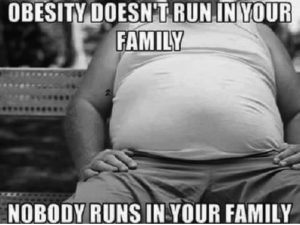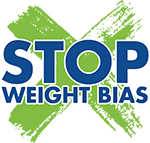Weight Bias in Social Media


Weight Bias, Body-shaming and Cyberbullying
Through social media, cyberbullying can be made visible to hundreds of people and remains very permanent and public in most circumstances. One of the most common forms of cyberbullying is body shaming which perpetuates weight bias.
While weight bias is damaging to everyone, weight bias on social media mainly affects the younger generation with 94% of teenage girls reporting that they have been body-shamed on social media.¹ Nearly 50% of people who are bullied on social media are bullied because of their weight.²
Bullying through social media usually comes in the form of hateful comments or memes.
What is a Meme?


An internet meme is an idea, behavior or style that is spread via the internet. These are spread, normally, through social media platforms and are used for humorous purposes. While most memes are meant to be funny or relatable, some can be hurtful and offensive. Most of the time, internet memes about weight exhibit weight bias.
The Effects of Weight Bias in Social Media
Due to cyberbullying³…..
-
- 41% of people say that they developed social anxiety
- 37% of people say they developed depression
- 26% of people say they had suicidal thoughts
- 25% of people engaged in self-harm
- 20% of people started skipping class
- 14% of people developed an eating disorder
 Resources
Resources
Blocking users on social media or deleting your social media can be an effective way to avoid cyber bullying for some, but not all.
It’s important that children, adolescents and parents are armed with helpful resources to fight against cyberbullying. Visit the below sites to find online resources, hotlines and other information that can help anyone fight against cyberbullying!
1. “Social Media: Cyberbullying, Body Shaming and Trauma.” https://caclapeer.org/social-media-cyberbullying-body-shaming-and-trauma/.
What can I do to #StopWeightBias ?
1. Ask yourself if you hold negative opinions about people with excess weight. If so, remember obesity is a complex disease with multiple causes including genetic, biological, and other noncontrollable factors.
2. Challenge people who express negative opinions about people with excess weight.
3. Be Part of the Solution. With your help, we can build a better world, free of weight bias. We deserve a world where everyone is treated with dignity and respect.
Join the movement to Stop Weight Bias!
Click Here to Get Started!
